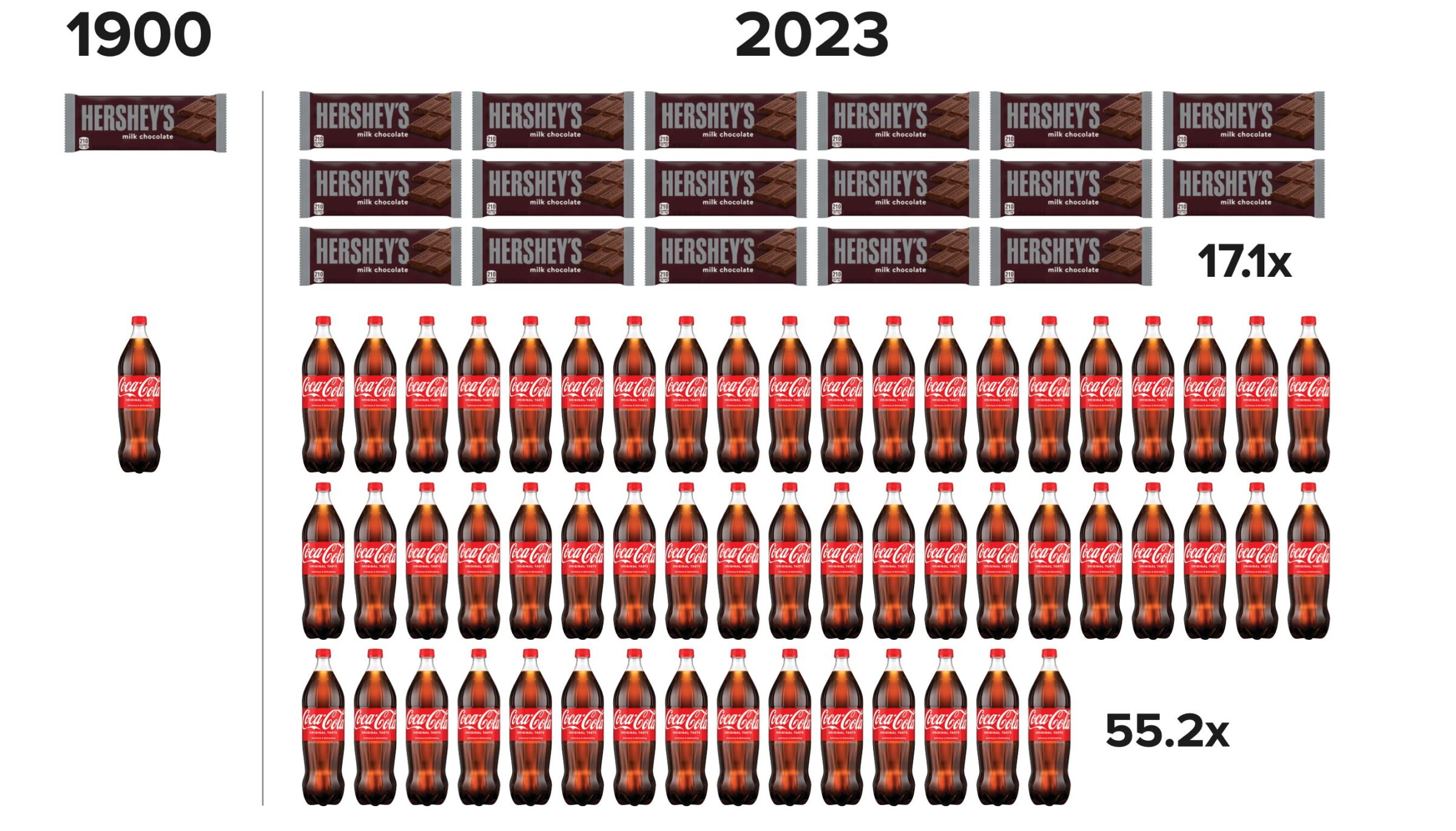Wealth & Poverty Review The Good Old Days Were Really Expensive
Original Article
If you had a dime in 1900 you could buy a one-ounce Hershey chocolate bar and a 6.5-ounce bottle of Coca-Cola. Sounds like those were happy days indeed. That is until you look at wages, which were around 14 cents an hour for blue-collar workers.
Today at Walmart a 1.55 ounce Hershey bar will cost you $1.17 and a 1.25 liter bottle (42.27 ounces) of Coke is $1.52. Blue-collar workers are earning closer to $36.15 an hour in compensation (wages and benefits).
We buy things with money but pay for them with our time. Money prices are expressed in dollars and cents, while time prices are expressed in hours and minutes. A time price is simply the money price divided by hourly income.
In 1900 it took more than 21.4 minutes to earn an ounce of chocolate and 3.3 minutes for an ounce of a refreshing beverage. By 2023 the chocolate time price had fallen to 1.25 minutes and sodas were down to 0.06 minutes (3.58 seconds).
Chocolate has fallen 94.2 percent while colas fell 98.2 percent. For the time required to earn one ounce of chocolate in 1900, you get 17.1 today, and for the time required to earn one ounce of Coca-Cola in 1900, you get 55.2 ounces today. Chocolate is 1,611 percent more abundant while cola is 5,425 percent more abundant.
Things can get more expensive and more affordable at the same time. This is why you must always compare prices to wages to see the true price, which is how much time things cost you.
Global population in 1900 was 1.65 billion. Today there are over 8 billion. Population has increased by 385 percent. For every one percent increase in population, chocolate abundance increased by 4.2 percent and cola abundance increased by 14.1 percent.

